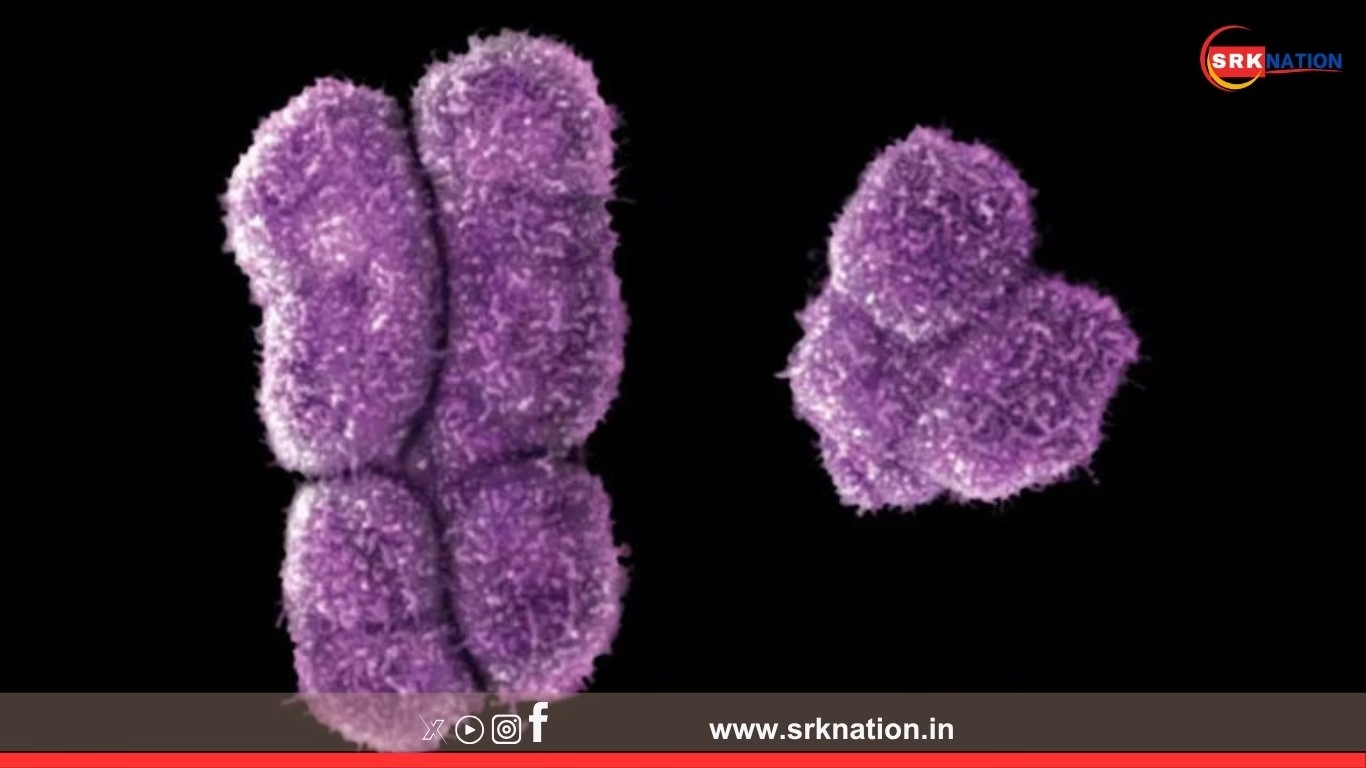A surprising and rapidly growing body of scientific research suggests that as men age, they may be losing something deeply embedded in their genetic identity — the Y chromosome. Long considered the defining marker of male sex, the Y chromosome appears to be disappearing from a significant percentage of blood cells in men as they grow older. While this genetic phenomenon might sound like science fiction, the reality is that it carries serious implications for men’s health, immunity, and longevity.
Recent studies have shown that this loss of the Y chromosome, referred to as “mosaic loss of Y” (LOY), is one of the most common forms of acquired mutation in aging men. More importantly, emerging data reveals a strong association between LOY and an increased risk of diseases such as cancer, Alzheimer’s, heart disease, and overall shortened lifespan.
What Is Y Chromosome Loss?
The Y chromosome is one of two sex chromosomes that determine biological sex in humans — the other being the X chromosome. While women carry two X chromosomes (XX), men carry one X and one Y (XY). The Y chromosome contains genes that are critical to male sex development, sperm production, and other important functions.
As men age, certain blood cells may begin to lose the Y chromosome. This doesn’t mean the entire body loses the chromosome — it’s a process called mosaicism, meaning only some cells are affected. Initially dismissed as harmless, LOY is now being linked to a range of age-related diseases, triggering a scientific rethinking of how aging and genetic integrity are connected.
Why Does Y Chromosome Loss Matter?
While the Y chromosome is relatively small and contains fewer genes than the X chromosome, it plays an outsized role in male health. The loss of this chromosome in blood cells is believed to weaken immune system functioning and contribute to disease vulnerability.
Recent studies suggest the following outcomes in men with significant LOY in white blood cells:
- 3x increased risk of Alzheimer’s disease
- 2x higher risk of cardiovascular disease
- Higher likelihood of multiple forms of cancer
- Lower lifespan compared to men without LOY
Health Implications of Y Chromosome Loss
| Health Issue | Risk Increase With LOY | Impact |
|---|---|---|
| Alzheimer’s Disease | Up to 300% | Accelerated cognitive decline and memory loss |
| Cardiovascular Disease | Around 100% | Higher chance of stroke, heart attack |
| Various Cancers (e.g., Prostate) | 50%–70% | Weak immune surveillance of tumor cells |
| Shortened Lifespan | 5–6 years earlier | Decreased longevity due to disease susceptibility |
| Autoimmune Diseases | Moderate | Reduced immune response due to fewer functioning cells |
These findings paint a concerning picture. The Y chromosome may be small, but its gradual disappearance could contribute to why men are, on average, more vulnerable to certain diseases and have shorter lifespans than women.
What Causes Y Chromosome Loss?
Scientists believe several lifestyle and environmental factors contribute to LOY, including:
- Aging: Primary driver; more common after age 60.
- Smoking: Strong correlation with increased Y chromosome loss.
- Pollution and toxins: Exposure to heavy metals, air pollution, and radiation may elevate risk.
- Chronic inflammation: Impacts DNA stability.
- Obesity and poor diet: Associated with genomic instability.
These risk factors not only accelerate the process of LOY but also contribute independently to other age-related diseases, creating a compounding effect on health.
Age Group Distribution of Y Chromosome Loss
| Age Group | Estimated Prevalence of LOY in Blood Cells |
|---|---|
| Under 40 | Less than 2% |
| 40–59 | 10%–15% |
| 60–69 | 20%–40% |
| 70–79 | 45%–60% |
| 80 and above | Up to 75% |
As illustrated above, the rate of LOY rises significantly with age, suggesting it’s an inevitable part of the aging process for many men — but also one that could potentially be slowed or mitigated.
Can Y Chromosome Loss Be Prevented or Slowed?
Although LOY cannot be completely stopped, early findings suggest that some lifestyle interventions could reduce its severity or delay onset:
| Preventive Measure | Effect on LOY Risk |
|---|---|
| Smoking cessation | Significantly reduces LOY acceleration |
| Regular exercise | Maintains genomic integrity |
| Antioxidant-rich diet | Reduces oxidative DNA damage |
| Stress management | Lowers chronic inflammation |
| Periodic medical screening | Enables early detection of disease linked to LOY |
Some researchers are even exploring therapies that could replace or support functions typically lost with LOY, including gene-editing techniques and stem cell rejuvenation, though these are still in early stages.
A Deeper Genetic Question: Is the Y Chromosome Disappearing Altogether?
Interestingly, some evolutionary biologists have proposed that the Y chromosome is gradually disappearing from the human genome altogether — although this process would take millions of years. Unlike other chromosomes, the Y doesn’t recombine during cell division, making it more vulnerable to degeneration over evolutionary time.
However, this broader theory is separate from the mosaic loss observed in aging individuals. Current scientific focus remains on the real-time implications for men’s health, not speculative evolutionary outcomes.
Expert Opinions
Dr. Karen Simmons, a geneticist specializing in male health, explained:
“The Y chromosome, though small, contains genes that play critical roles beyond just determining sex. Its loss in blood cells is like removing frontline defenders of the immune system — which is why we’re seeing links to diseases like Alzheimer’s and cancer.”
Meanwhile, Dr. Amandeep Verma, a researcher on LOY and its health impacts, added:
“This discovery adds another dimension to how we understand male aging. It’s not just hormones or external factors; genetic decay in specific chromosomes is at play.”
What This Means for the Future of Men’s Health
The discovery that many men begin to lose their Y chromosomes later in life is reshaping how scientists approach aging and chronic disease in males. It may lead to new diagnostic tests that measure LOY as a predictive biomarker for age-related diseases. There is also growing interest in developing targeted interventions to protect or compensate for Y chromosome loss in high-risk populations.
Public health campaigns focused on quitting smoking, managing stress, and maintaining overall genetic health may become even more crucial — not just for general wellness, but for literally preserving the chromosomes that protect the male body.
Disclaimer: This article is intended for informational purposes only. It does not substitute professional medical advice, diagnosis, or treatment. Readers concerned about their health should consult with a qualified medical professional.











